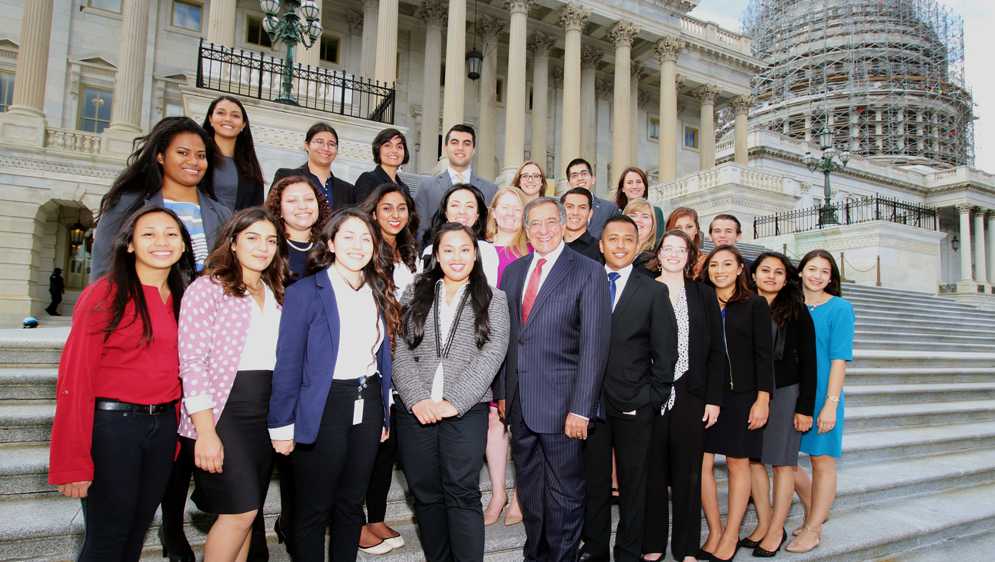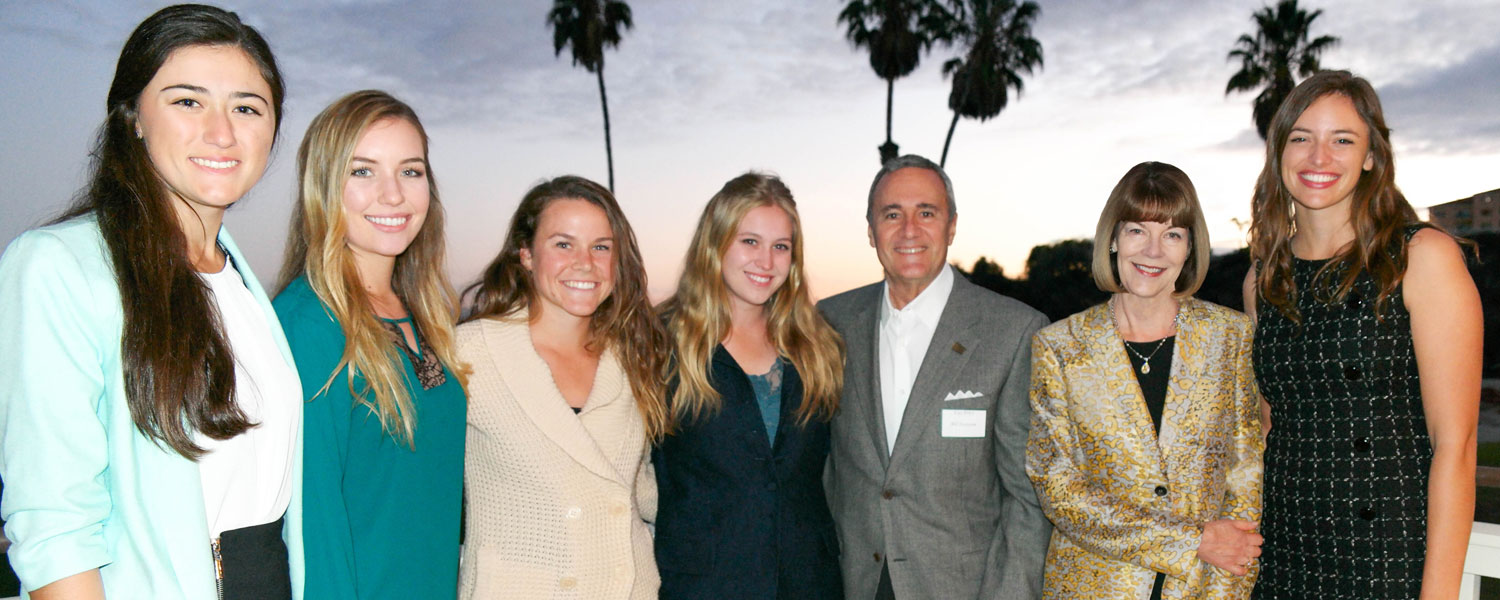cal poly news
Inspiring Service
By Larry Peña | Video by Matt Yoon

In many ways Congress is the epicenter of American democracy, but it’s a system that relatively few citizens ever get to see up close in action. Each year, one outstanding Cal Poly student gets that opportunity with the Panetta Institute Congressional Internship Program.
The program is a partnership with the non-partisan Panetta Institute for Public Policy. Founded by former Congressman and Defense Secretary Leon Panetta and his wife Sylvia, the internship program seeks out some of the best and brightest students from across the California State University (CSU) system to pair them with members of Congress for an unforgettable three-month educational experience in the nation’s capital.
“Being there and seeing all the work that goes into governance makes me feel more responsibility as a citizen to be engaged, and to influence others to do the same,” said Courtney Jacobson, a fourth-year information systems student who returned to Cal Poly this winter from her fall internship in Washington. “Rather than complaining about Congress, we should understand that it’s a reflection of our country.”
The program is highly selective. At each of the 23 schools in the CSU, as well as three other institutions, outstanding student applicants are extensively vetted and interviewed by the university president. Once each campus chooses its nominee for the program, a panel of Panetta Institute advisors and former government officials, including the Panettas themselves, must then approve those nominees.
The internship begins each fall, when the interns receive two weeks of training at the Panetta Institute’s headquarters in Monterey, Calif. During this crash course, interns learn about Congressional etiquette and protocol. They also get briefings on the critical issues they will encounter in Washington, like healthcare, terrorism, the environment, the federal budget, energy policy and international relations. Their teachers during this training period include sitting and former Senators and congressional representatives, political journalists, legal experts and sometimes even former vice presidents.
“It’s like a boot camp to prepare us for Washington,” said Anna Consani, who participated in the internship in 2012 and now works for a D.C.-area non-profit that supports female tech entrepreneurs. “Tons of students go to Washington in the fall for internships, but the Panetta Institute is very particular about their interns — they want them to be both humble and especially well-educated.”
After training, the interns are matched with a Congressional representative from California and head to Washington for three months. The duties they perform can range from basic office work to staffing representatives at critical meetings and hearings in the Capitol.
“I did a lot of press work. I coordinated press conferences and magazine articles, wrote press advisories, even wrote some speeches,” says Colin Rizzo, a journalism major when he interned with then-House Speaker Nancy Pelosi through the Panetta internship in 2006. After graduation, he went on to work for Hillary Clinton’s first presidential campaign, and now helps develop renewable energy policy as an attorney and analyst for the California Public Utilities Commission.
Interns in the program couldn’t ask for better mentors than Leon and Sylvia Panetta, who boast a lifetime of intimate experience in federal government. After spending decades as the congressional representative serving Monterey, Calif., Leon Panetta directed the federal Office of Budget and Management. In 1994 he became chief of staff for President Bill Clinton, and in 2009 President Barack Obama appointed him director of the CIA. Two years later, the Senate unanimously confirmed him as Secretary of Defense. During those years, Sylvia Panetta directed five Congressional district offices, and served as Deputy Director for Staff and Finance at the President’s Crime Prevention Council.
“Secretary Panetta and I have always felt that public service is the essence of a democracy,” said Sylvia Panetta. “We want our students to become more engaged, more interested in policy and politics, to become more involved in their communities.”
The Panettas bring their years of expertise to the education interns receive in this program. “There’s no better time than now to get involved in this program,” says Rizzo. “You have an opportunity to have someone whose career has helped shape the course of history teach you how to become a public servant. It’s a once in a lifetime opportunity.”





